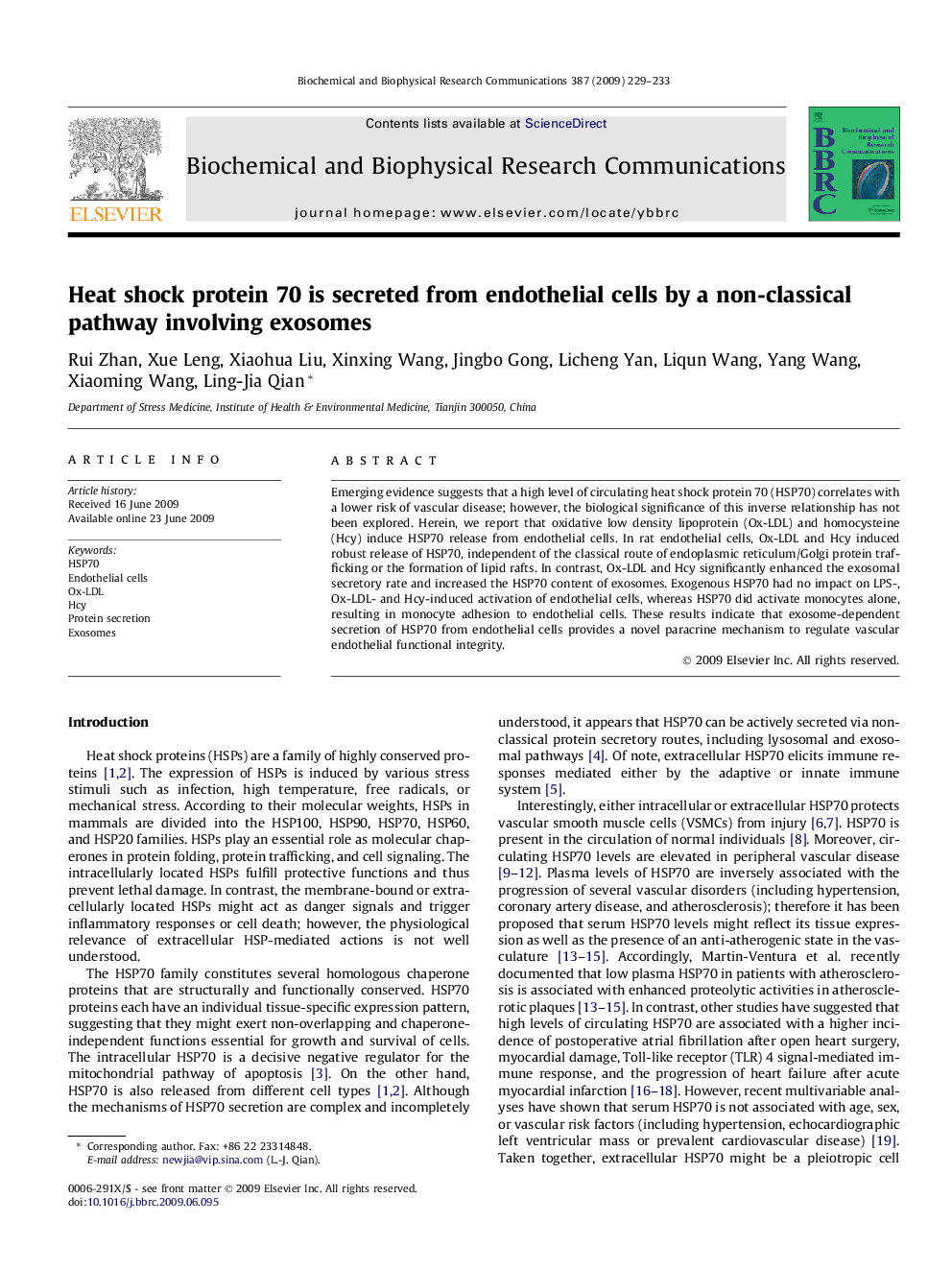| Article ID | Journal | Published Year | Pages | File Type |
|---|---|---|---|---|
| 1933773 | Biochemical and Biophysical Research Communications | 2009 | 5 Pages |
Emerging evidence suggests that a high level of circulating heat shock protein 70 (HSP70) correlates with a lower risk of vascular disease; however, the biological significance of this inverse relationship has not been explored. Herein, we report that oxidative low density lipoprotein (Ox-LDL) and homocysteine (Hcy) induce HSP70 release from endothelial cells. In rat endothelial cells, Ox-LDL and Hcy induced robust release of HSP70, independent of the classical route of endoplasmic reticulum/Golgi protein trafficking or the formation of lipid rafts. In contrast, Ox-LDL and Hcy significantly enhanced the exosomal secretory rate and increased the HSP70 content of exosomes. Exogenous HSP70 had no impact on LPS-, Ox-LDL- and Hcy-induced activation of endothelial cells, whereas HSP70 did activate monocytes alone, resulting in monocyte adhesion to endothelial cells. These results indicate that exosome-dependent secretion of HSP70 from endothelial cells provides a novel paracrine mechanism to regulate vascular endothelial functional integrity.
